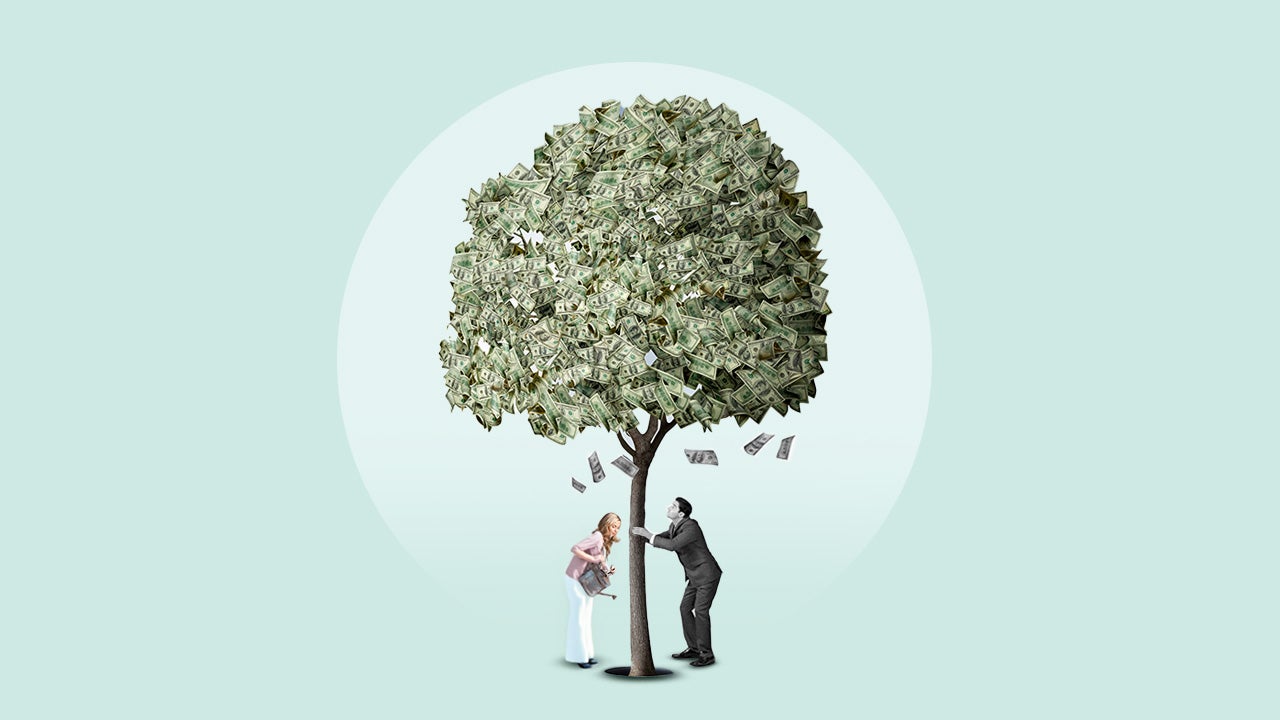Here’s an uncomfortable truth: Every time we buy one of the Magnificent 7 stocks, shop with the largest online retailers or pay loan interest to a big-name bank, we’re putting money in the pockets of billionaires. To put their enormous wealth into perspective, if you make $50,000 a year, it would take 20,000 years to earn $1 billion, even if you didn’t spend a single penny.
Meanwhile, according to Bankrate’s 2025 Annual Emergency Savings Report:
- 73% of Americans are saving less for emergency expenses due to inflation, higher interest rates or changes in employment or income.
- 37% of U.S. adults have pulled money from their emergency fund in the past 12 months, as of February 2025.
- 33% have more credit card debt than emergency savings.
The wealth gap is wide, but here’s some encouraging news: You can learn how to make your money work for you, instead of billionaires. Make these four changes to flip the script and reclaim your financial power.
1. Bank and shop locally
Big banks don’t just hold your money — they use it. If you have deposits sitting in a low-yield savings account, they may be funding billion-dollar deals, lobbying efforts and risky investments that don’t benefit you at all.
Local credit unions and community banks, on the other hand, tend to keep money circulating in your neighborhood’s small businesses, home loans and community development projects.
Last year, I shifted some of the money I was saving for a home down payment to a local credit union and got a higher interest rate on a certificate of deposit than the large national banks offered.
Similarly, when you support your neighborhood coffee shop, bookstore or family-owned restaurant, more of your money recirculates within your local economy to support jobs and help independent businesses survive.
Your money move
Even shifting just 10 percent of your monthly spending to local shops can have a significant impact — not just on your wallet, but on your community’s future.
Want to make an easy switch? Move one account — like your emergency fund — to a local bank or credit union in your community. This small shift keeps your money local. If you make this change, keep an eye on the APY — ideally, you’ll put your money somewhere with a high yield that also keeps money circulating in your community.
2. Give charitably to shape the world and earn tax deductions
Billionaires are famous for using charitable giving to receive tax deductions and boost their reputation — but that doesn’t mean this strategy is off-limits to the rest of us. In fact, it’s one of the most powerful financial tools we all can use.
For example, one of my clients hosted a golf tournament for his youth sports organization. By donating and becoming a sponsor, I supported a mission I believe in, built new business relationships and received a tax benefit.
One strategy that most Americans overlook is donating stocks or other assets that have appreciated in value. Typically, if you own a stock that has grown in value, you will owe taxes on the gain. But by donating appreciated assets, the nonprofit gets the full value, and you get a double tax benefit: a tax deduction and avoiding capital gains tax.
Your money move
Identify three nonprofits that align with your interests. When you donate to a qualified nonprofit, you’re not only lowering your income tax — you’re building the world you want to live in. That’s money back in your pocket and forward to a mission you care about.
3. Stack cash so you can jump at wealth-building opportunities
Most people save money in case something goes wrong. Billionaires save so they can move fast when assets go on sale. While the average American fears a recession, billionaires stack cash for their next real estate deal, a startup round or a market dip. They’re ready to act.
Most of my clients aren’t in a position to invest quickly because their foundational cash flow cushion is low or they need to pay down credit card debt, which currently bears an average interest rate above 20 percent.
Since becoming completely debt-free in 2019, I now carry more cash than the median American’s bank account balance of $8,000, so when a great business or buying opportunity rolls around, I’ll be ready.
Your money move
You can do the same by building an “opportunity fund.” Start with a traditional emergency fund of three months’ expenses. Then, once you’re stable, start saving separately for wealth-building opportunities that build local resiliency — like becoming an angel investor or supporting community initiatives.
4. Get accredited as an investor
Wealthy people have access to exclusive investment opportunities that the average consumer doesn’t.
Accredited investors are individuals or entities who earn $200,000 per year or have a net worth of at least $1 million. They can invest in private real estate deals, startups and other less visible opportunities that are higher risk, but also offer much higher returns.
Working toward accredited investor status is like getting a VIP pass to your favorite concert. You get access to exclusive opportunities, a better view and a more rewarding experience.
The goal isn’t just to get richer; it’s having the option to invest in companies you want to succeed, instead of only being limited to whatever’s available to the public in the stock market.
Your money move
Don’t count yourself out. You can build toward accredited status by increasing your savings rate, paying off debt and growing your income. Even if you never become an accredited investor, your financial plan will be better informed if you work toward that goal.
You won’t accomplish this goal overnight. It took me 10 years to grow my net worth and become an accredited investor. Now, I’m focused on investing in small businesses that aren’t run by billionaires but by people I know, like and trust.
Final thoughts: Act fast and in alignment with your values
These four moves are meaningful and mighty shifts that can help you redirect your money away from the mega-rich and toward your own goals, values and future. They also helped me build wealth in a way that feels purposeful and not just about acquiring more material things.
Pick one to try this week. Open a credit union account. Visit a local business to support. Set a donation goal for the year. Stack your cash. Your money should work for YOU and the people you care about — and it can start today.
Read the full article here















